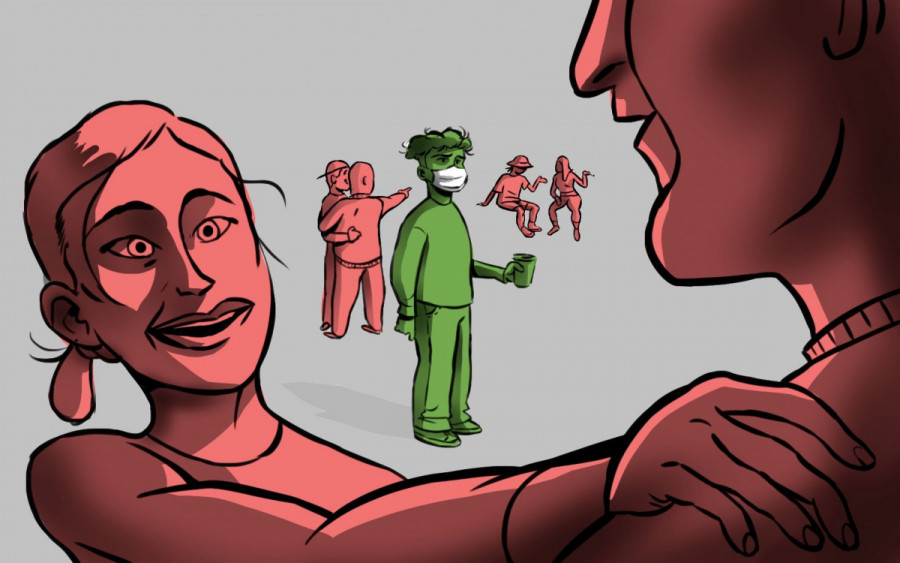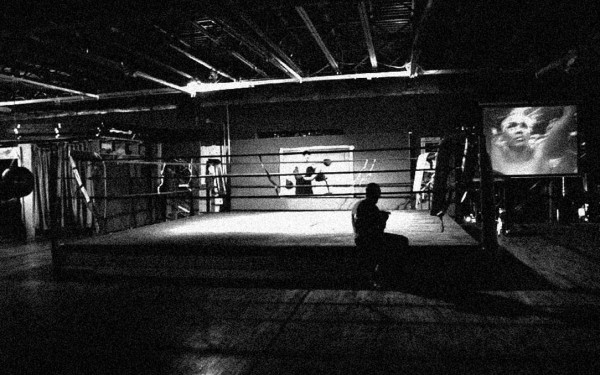End of mask mandates in Quebec endangering the immunocompromised
With businesses now being free to decide which regulations to enforce, people who are immunocompromised feel voiceless
“I was just adjusting to becoming immunocompromised right when the pandemic started,” said Marc Griffin, a mental health worker who suffers from Crohn’s, an autoimmune disease, “and to suddenly feel very vulnerable [amidst] all these shifting of mandates […] has very much been a rollercoaster.”
He added that the immunocompromised people—individuals with a weaker immune system—he has spoken to from around the world all feel as though they have been left behind throughout the pandemic.
In Quebec, May 14 marked the lifting of the mask mandate, and for people like Griffin, this will make grocery shopping a much riskier task. He explained that although there are ways to buy food online, this is not the ideal option for him due to his autoimmune disease, which affects the digestive tract and often spreads to surrounding areas.
Removing the mask mandate is like taking away the windshield [of a car]. It’s the one last thing we have going for us. — Marc Griffin
“I like to be able to look at my fruits and vegetables and feel them [to] see if they are fresh because that actually affects my health,” he said.
Griffin added that he would be 10 times more likely to visit a local grocery store that compels customers to wear a mask even if their prices are higher than supermarket chains.
“I live in a place of privilege where I can work from home […] but I think things like masking; the vaccine passport; up until December, wastewater testing; and PCR testing […] were extremely important measures that helped me guide my actions in terms of what I was comfortable doing,” said Griffin.
Wastewater testing is an effective way to track the progression of COVID that was used in Montreal from December 2020 to December 2021. Among the few non-government-funded initiatives that have been in use ever since is the wastewater testing program in McGill’s residences.
“Almost every major city in North America has wastewater testing and it’s one of the vital signs to tell just how bad the pandemic is in our region,” said Griffin.
For the past two months, Quebec has been announcing the return of wastewater testing, but they have yet to deliver, he added. Instead, the government announced on May 14 the removal of the mask mandate.
“Removing the mask mandate is like taking away the windshield [of a car]. It’s the one last thing we have going for us,” he said.
Griffin believes certain local businesses will continue enforcing masking until further notice. These businesses likely have leaders who either know someone who is immunocompromised or who are immunocompromised themselves, he said. He added that many have a clientele that is especially at-risk, such as the elderly.
In a general sense, I’m uncomfortable with the idea of us moving forward as if we’ve finished a pandemic that’s still happening. — Ayan Yusuf Karshe
Ayan Yusuf Karshe, the executive director at The Concordia Community Solidarity Co-op Bookstore, said the co-op will continue requiring customers to wear masks even when the university lifts its own mask mandate on June 23.
“It’s for the immunocompromised population and for my staff. It’s just not logical for me to put their safety [at risk since] they are also interacting with the public,” Karshe said.
They added that they are prepared to face customers who may not wish to comply with this regulation and the store will continue providing free masks even if Concordia eventually stops supplying them.
“I’d rather create a safer space for the collective rather than any kind of false liberatory expression,” they stated, adding that the bookstore will always value egalitarianism and knowledge-sharing rather than pander to anti-maskers.
“In a general sense, I’m uncomfortable with the idea of us moving forward as if we’ve finished a pandemic that’s still happening,” said Karshe.
Griffin also stated that “this virus is not going away anytime soon but society seems to be tired and wants to move on."
Although the executive director mentioned that most of the fee levy groups the bookstore interacts with share their perspective, Le Frigo Vert, another Concordia fee-levy group, mentioned having a different approach moving forward.
Donald Armstrong, a collective member at Le Frigo Vert, confirmed that all staff will continue wearing masks for the time being; however, customers will no longer be required to wear a mask inside the store.
“We don’t want to be policing people who walk in because some believe in wearing a mask and others don’t,” he stated.
As local businesses start implementing their own regulations with the government lifting provincial mandates, Griffin spoke on one thing in particular: “I think you have to think about our most vulnerable populations because we can’t exactly fend for ourselves.” He added that essential services like banks, pharmacies, and grocery stores should continue to be subjected to a mask mandate.




__600_375_90_s_c1.jpg)
1_600_375_90_s_c1.jpg)
